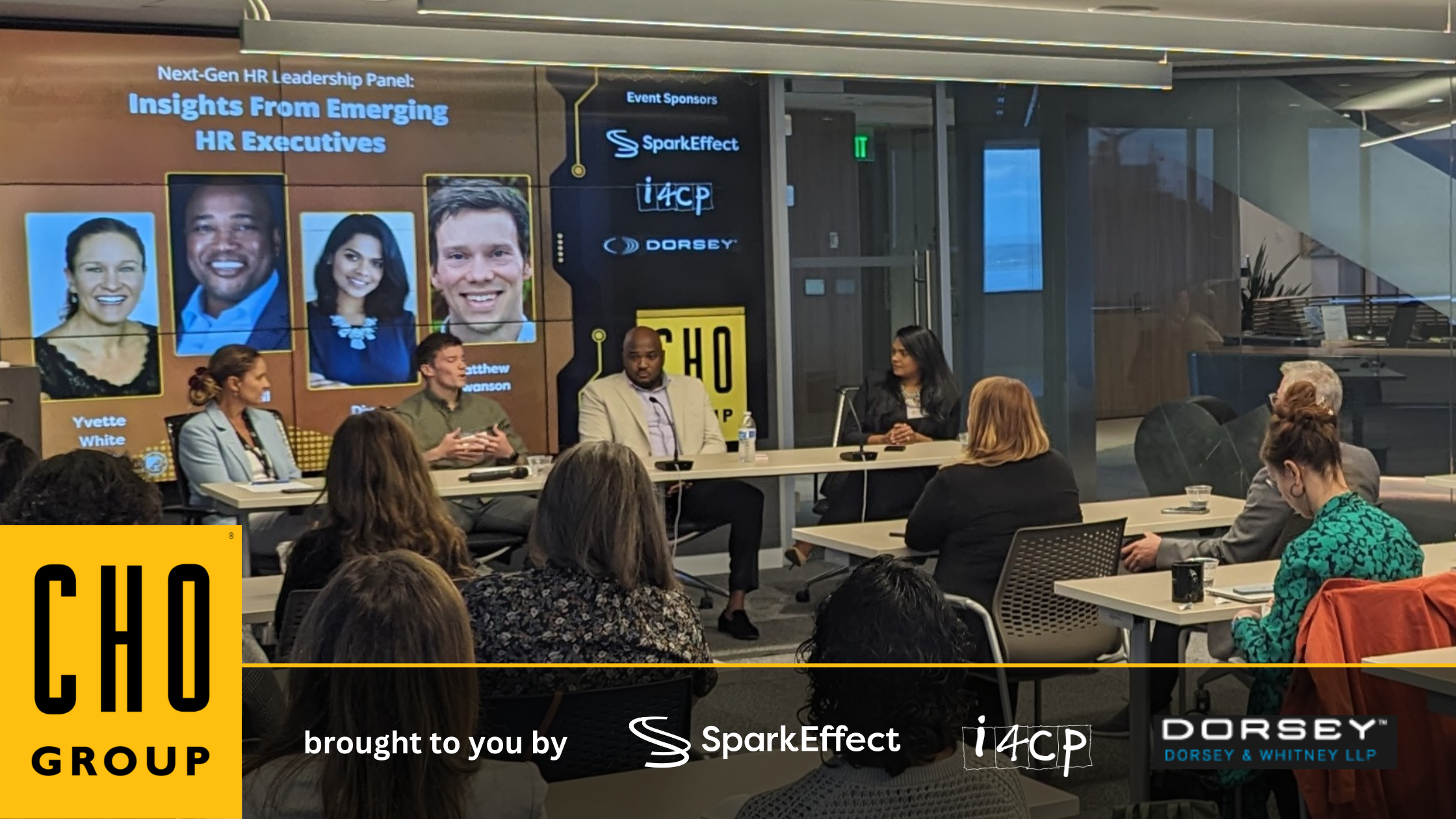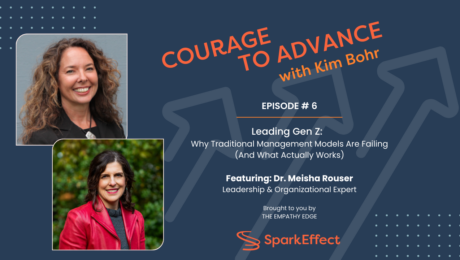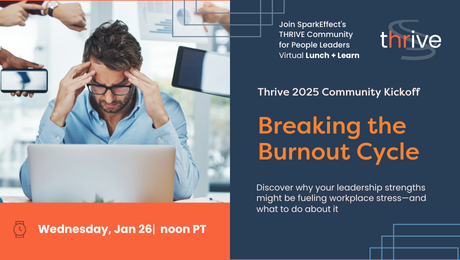The role of HR is evolving at an unprecedented pace, and it’s crucial for senior HR and People leaders to stay ahead of the curve. In May, the Seattle CHO Group hosted a thought-provoking panel discussion titled “Next-Gen HR Leadership Panel: Insights From Emerging HR Executives,” featuring moderator Yvette White and panelists David Campbell, Divya Sekhar, and Matt Swanson. These rising stars in the HR world shared their perspectives on the challenges and opportunities facing the profession, offering valuable insights that every HR leader should consider.
The Importance of Resilience and Continuous Learning
One of the key themes that emerged from the discussion was the importance of resilience and continuous learning. As Matt Swanson shared his experience of facing a challenging role and unemployment during the 2020 pandemic, it became clear that HR professionals must be prepared to adapt and grow in the face of adversity. David Campbell echoed this sentiment, emphasizing the need to constantly take on challenging assignments and develop new skills. In an era of rapid change, HR leaders who demonstrate resilience and a commitment to learning will be best positioned to succeed.
Leveraging Technology and AI in HR
Another critical aspect of HR’s future is leveraging technology and AI to drive efficiency and enhance the employee experience. Matt Swanson’s success story about implementing a chatbot that used natural language processing to provide employees instant access to HR information and support is just one example of how AI can transform HR processes. As Divya Sekhar pointed out, AI has the potential to revolutionize learning and development, talent acquisition, and employee experience. However, she also cautioned that domain expertise is essential when working with AI, as it relies on the quality of the data it is trained on. HR leaders must strike a balance between embracing new technologies and maintaining a deep understanding of their organization’s unique needs and challenges.
The Significance of Mentorship and Sponsorship
The panelists also emphasized the significance of mentorship and sponsorship in navigating the complexities of the HR landscape. Divya Sekhar seeks mentors who have extensive experience, challenge her perspectives, and act as career sponsors by advocating for her in rooms she doesn’t have access to. David Campbell values mentors who advocate for him in and out of the room, provide appropriate development opportunities, and listen to his concerns professionally and personally. As HR leaders, it’s essential to cultivate strong mentorship relationships and be willing to sponsor and advocate for emerging talent within our organizations.
Adapting to the Changing Expectations of the Workforce
Perhaps most importantly, the panel discussion highlighted the need for HR to adapt to the changing expectations and needs of the workforce. David Campbell stressed the importance of skilling as the new talent currency, focusing on developing existing employees to fill future roles. Matt Swanson discussed the shift from command-and-control leadership to an ignite-and-inspire approach, emphasizing the need for managers to develop emotional intelligence and adapt to the expectations of younger generations. Divya Sekhar highlighted the importance of well-being benefits, active listening, and understanding the unique needs of the next generation of workers. As HR leaders, we must be attuned to these changing expectations and be willing to adapt our strategies and practices accordingly.
Divya Sekhar
“Talent strategy should be aligned to the evolving needs of business strategy. Mapping critical roles, focus on upskilling and reskilling talent should be part of our strategic outlook for HR.”
In conclusion, the insights these next-gen HR leaders share serve as a powerful reminder that the future of HR is both challenging and full of opportunity. By embracing resilience, continuous learning, and adaptability, leveraging technology and AI effectively, cultivating strong mentorship and sponsorship relationships, and staying attuned to the changing needs of the workforce, HR leaders can position their organizations for success in the years to come. As we navigate this rapidly evolving landscape, it’s essential that we remain open to new ideas, willing to challenge the status quo, and committed to creating a future-ready workforce that can thrive in the face of change.
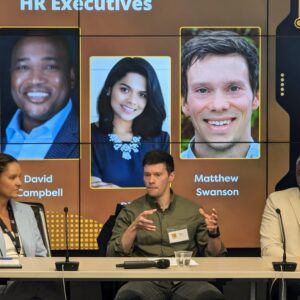
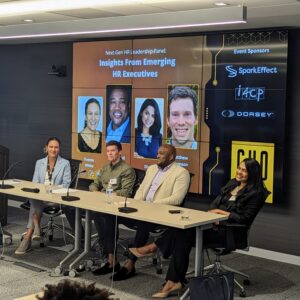
About Seattle CHO Group
The CHO Group™ (for Chief HR/People Officers) is a membership organization that provides strategic business leaders in HR with cutting-edge ideas, best practices on a range of subject matter, and deeper perspectives to help leadership add bottom-line value where they work.
Membership is extended to the most senior HR leaders in each market. If you are interested in participating or learning more, please email info@chogrouphr.com.
The Seattle CHO Group is brought to you by SparkEffect, i4cp, and Dorsey & Whitney LLP.

